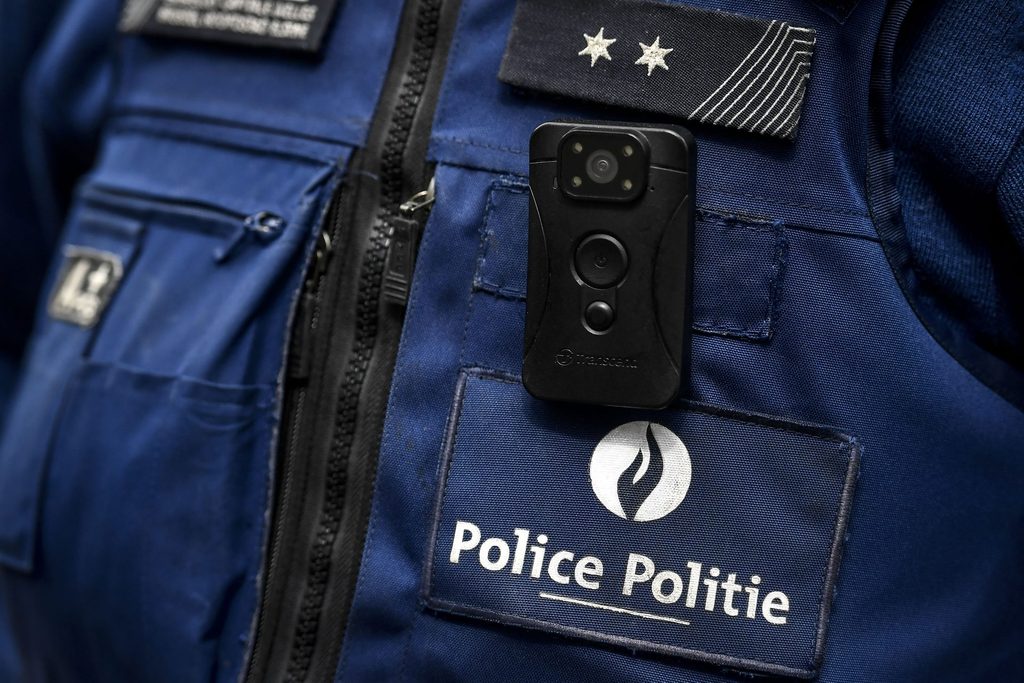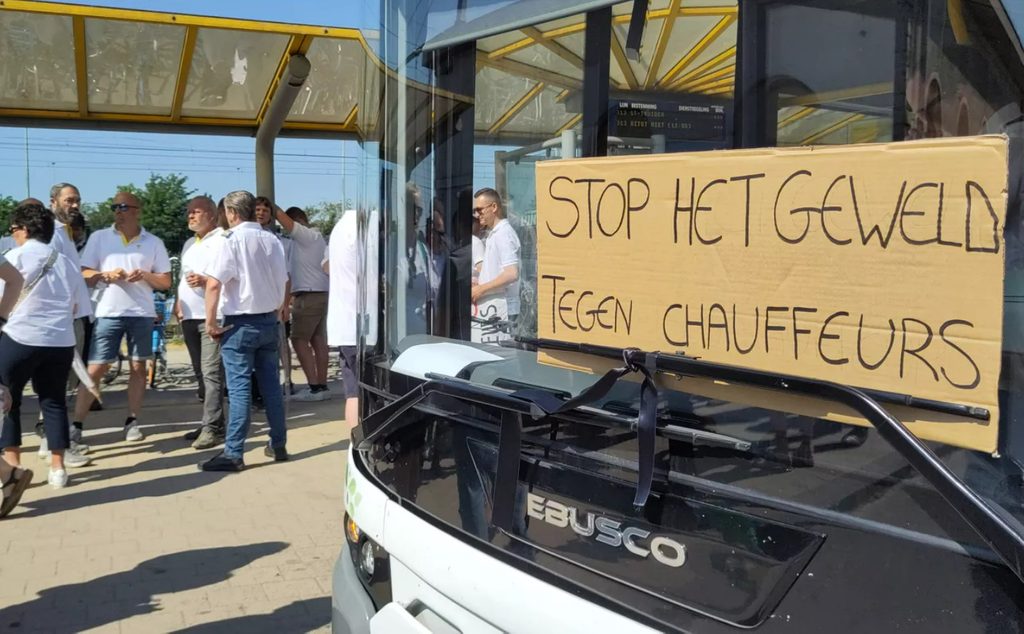In an effort to tackle the problem of aggression on public transport, the Federal and Flemish governments have created a ten-point action plan that includes bodycams for inspectors and a bus ban for troublemakers.
Physical and verbal violence against employees of public transport companies has been a problem for some time, with ticket disputes often the trigger. Railway company SNCB received 1,900 such reports in 2022, whilst regional bus operator De Lijn recorded 338 acts of physical aggression against drivers and inspectors last year.
The "Stop aggression" plan puts the safety of employees as a priority. Flemish Mobility Minister Lydia Peeters explained that "Only with united forces can we ensure a better tit-for-tat policy."
Preventive measures include closed control posts in all De Lijn buses and 67 extra inspectors recruited by the company. Besides prevention, the plan also focuses on enforcement and punishment.
Preventive function
"The fight against senseless violence in all forms is a top priority for us," emphasised Patrick Vandenbruwaene, president of the board of prosecutors general. However a third of incidents is not followed up due to a lack of evidence.
"That is why it is important that all incidents are immediately reported to the police, with as much evidence as possible, such as camera images. Too often it is word against word," said Federal Justice Minister Vincent Van Quickenborne.
Belgium's public transport companies have been asking for bodycams, stressing that these can also serve as a deterrent to violence as it is less likely that discussions turn violent if a bodycam is present.
Federal Interior Minister Annelies Verlinden has announced a working group on the topic of bodycams but warns of the potential for privacy complications.

A policeman wearing a 'body-worn video' system in Brussels. Credit: Belga/Dirk Waem
Van Quickenborne stressed that violence against people with a social function (such as police officers, emergency workers, train conductors, bus drivers and inspectors) will be punished more severely under the new penal code.
But whilst unions at the Flemish public transport company De Lijn recognise the progress it will bring, they were unsatisfied with the "missed opportunity" of bodycams for inspectors: "The question has been on the table for more than a year," Stan Reusen of the socialist trade union of ACOD TPM told Belga News Agency. "The issue is now being put in a working group but we fear that it will be shelved."
Related News
- Spontaneous strike at De Lijn after case of aggression against driver
- SNCB to get rid of cash payment when onboard trains
Others have dismissed the privacy argument against bodycams, saying that people are filmed everywhere (on the street, in buses, etc.) but suddenly it's an issue with bodycams. Proponents acknowledge that the devices aren't toys but an important tool and safety measure.
But unions have welcomed other elements of the action plan, such as the closed control posts on the buses and the additional inspectors. They expressed satisfaction with the proposed stricter penalties for violence against people with social functions.

